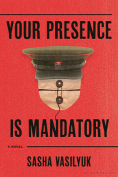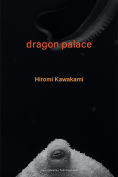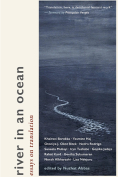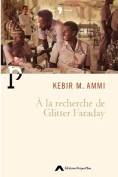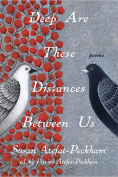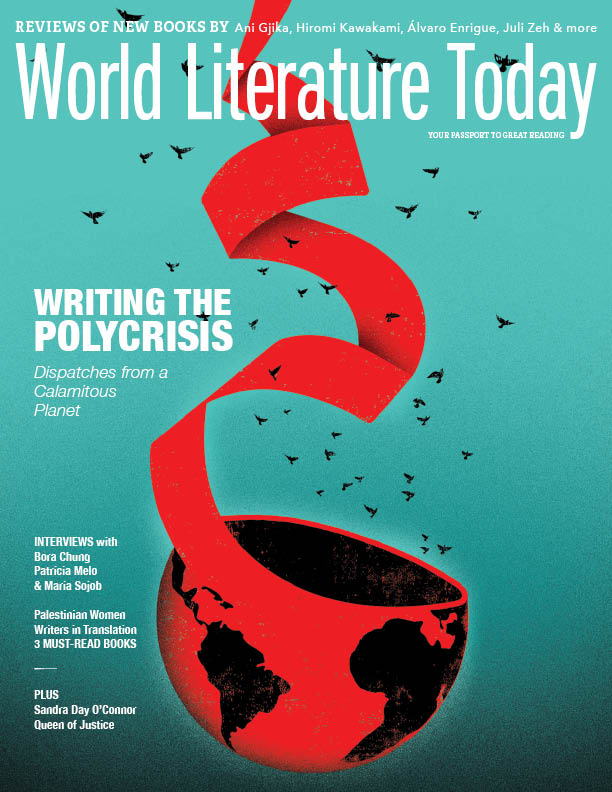Your Presence Is Mandatory by Sasha Vasilyuk
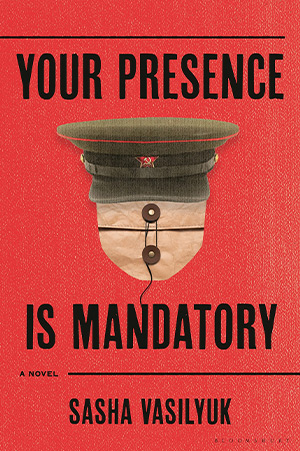 New York. Bloomsbury. 2024. 313 pages.
New York. Bloomsbury. 2024. 313 pages.
In Your Presence Is Mandatory, Sasha Vasilyuk delivers the riveting story of a Soviet veteran whose long-held personal secret could not only land him in the gulag but also have dire, long-standing consequences for his wife and children. Your Presence Is Mandatory carries the story of Yefim Shulman, a father, husband, grandfather, Ukrainian Jew, and war veteran whose posthumous letter to the KGB unleashes a series of questions about whether or not Yefim’s beloved family and co-workers truly knew him. However, Your Presence Is Mandatory is not a personal indictment of Yefim and his personal choice about what and what not to reveal to his family and friends. Instead, it is a criticism of the Soviet system, founded on maintaining a guise of pride at all costs and a systemic paranoia that influenced generations to come. Carefully woven, too, with Yefim’s story is a story of modern Ukraine grappling with Russia, its age-old oppressor, and the harbingers of war fueled by Russian propaganda and centuries of colonialism.
When the novel begins, readers see Yefim as a young man, deeply committed to his siblings and his parents. Readers perceive that young Yefim is a dedicated Soviet soldier, unwilling—or at least hesitant to—question the Soviet Union’s methods and causes. At one point, Yefim reflects, “To have such conviction, against the USSR, of all things, seemed inexplicable.” Emerging amid young Yefim’s reluctance to acknowledge or admit the Soviet Union’s fallacies is a developing awareness that something even more sinister might have been established by Stalin and his authorities—the famine, also known in Ukrainian as Holodomor. Yefim recalls how “during the famine, he overheard his neighbors saying that Moscow was deliberately starving Ukrainian peasants to death—that they never should have become Soviet. They’d said it with the same kind of hate and it had shocked Yefim to tears.” Similar conversations repeat throughout the novel, particularly in the scenes in which Yefim is a prisoner of war in Germany. Yefim encounters other Ukrainians who recognize that the famine “wasn’t some natural tragedy.” At these points, Your Presence Is Mandatory possesses historical anecdotes to offer contemporary readers, and particularly Western and American ones, who may be encountering the Holodomor’s relevance and legacy for the first time.
Another notable character in Vasilyuk’s book is Nikonov, Yefim’s friend, who openly criticizes the Soviet regime, so much so that he has frequently endured numerous interrogations. At times, Nikonov’s blunt criticisms balance Yefim’s naïveté about what the Soviet regime truly thinks of its people. Nikonov frequently espouses that a Red Army soldier serves only two purposes: “shoot bullets into enemy chests or absorb enemy bullets so they run out of them quicker.” He acknowledges that the Soviet Union would cast World War II as “our country’s greatest act of bravery and sacrifice, and people who don’t fit into that storyline will be inconvenient. People like you and me. And I don’t need to tell you what our Motherland does with inconveniences.” Thus, Nikonov’s sentiments echo with a global public bearing witness to Russia’s brutal 2022 invasion of Ukraine as well as the inhumane treatment of those inside Russia who disagree with Vladimir Putin’s “special military operation.”
Therefore, one cannot read Your Presence Is Mandatory without noticing its conversation about war’s consequences, not only on soldiers and veterans, but also later generations. First, the novel examines the culture of silence and denial perpetuated by the Soviet system, which forced Yefim to lie about the actual events that led him to Germany during the war. Yefim shapes a story vastly different than reality in order to spare himself, and ultimately his family, the gulag. Threaded through the novel, too, is the Soviet Union’s glorification of its military might and supposed military accomplishments. Eerily, readers familiar with Russia’s invasion of Ukraine will see a familiar narrative, since Russia continually touts its accomplishments during the Great Patriotic War (World War II) even today. Thus, Yefim and Nikonov’s recognition of their expendability in the context of the Soviet machine makes them two of the novel’s most human, and most self-aware, characters. Yefim’s family is permanently shaped by his involvement in the war, too, because Yefim refuses to share his war stories with them. His silence grants them a certain plausible deniability. After his death, and after his secret’s revelation, each family member must grapple with the consequences of Yefim’s silence.
Your Presence Is Mandatory, despite its predominantly historical setting, is immediate and necessary, especially as former Soviet countries like Ukraine grapple not only to defend their sovereignty but to also slowly uncover their history without a Soviet gaze. Personal and haunting, Yefim’s story will remain with readers indefinitely, because all are called to present as Yefim and his family recount their stories.
Nicole Yurcaba
Southern New Hampshire University




